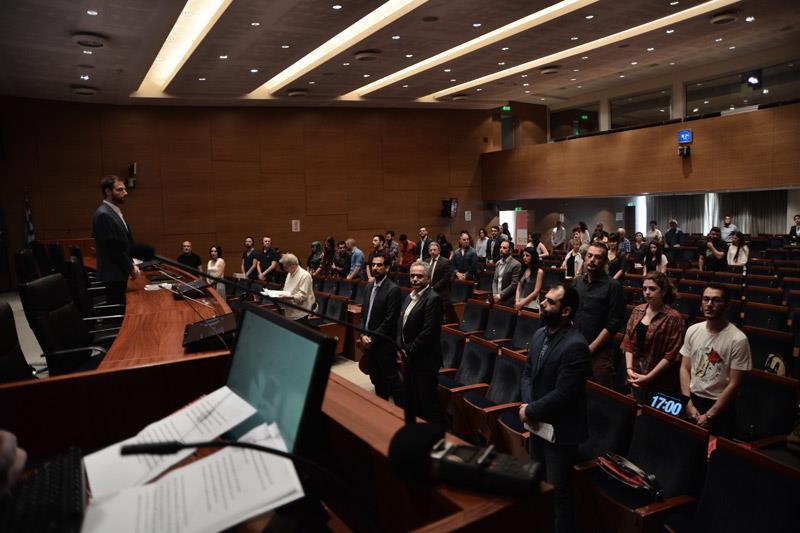According to the greek sex work legislation (adopted in 1999), sex work is legal and highly regulated, but only in state-licensed brothels and not in hotels or at the streets. Municipalities are allowed to determine the number of licensed brothels. Brothels are not allowed on a closer distance than 200 meters from public buildings, i.e. schools, churches, kindergartens, playgrounds, health clinics and hospitals, sport centers, libraries, squares and nursing homes.
According to the greek sex work legislation (adopted in 1999), sex work is legal and highly regulated, but only in state-licensed brothels and not in hotels or at the streets. Municipalities are allowed to determine the number of licensed brothels. Brothels are not allowed on a closer distance than 200 meters from public buildings, i.e. schools, churches, kindergartens, playgrounds, health clinics and hospitals, sport centers, libraries, squares and nursing homes. Thus, it is impossible to have a state-licensed brothel in any Greek city.
Furthermore, according to the law 2734/1999, the sex workers are not allowed to be married, but only be single, divorced or widowhood. The permission for sex work lasts only for 3 years and requires a number of legal and medical documents (e.g. identity, passport, residence permits, HIV test results, chest X-ray). Law demands mandatory medical testing for STIs every 15 days, which is one of the most strict regulations in EU. Furthermore, the law prohibits sex workers to work together as well as more than 1 license per building. The use of an apartment for sex work requires the consent of all the residents and the owners of the apartments. Finally, according to sex work legislation, the assistant staff of brothels should be older than 50 years old and should have mandatory medical testing.
All the speakers agreed on the urgent necessity to change the current legal framework that restrict the rights of sex workers.
It is noteworthy that the conference was organized with the official support of the Greek Ministry of Interior and the Minister himself, Panos Skourletis spoke of the need to examine all the social and cultural factors of the country as well as to study other models to effectively legislate on such a critical social issue as sex work.
Anna, representative of the Red Umbrella Athens, described the services and the experiences of the drop-in day center and stressed that the term “prostitution” is totally abusive and thus it should not be used to any public dialogue. Furthermore, she shared her own personal experience as sex worker, emphasizing the aspect that there are sex workers who actually decide to work on their own will, and so it is urgently needed to recognize sex work as equal as any other profession.
“Unfortunately, still here lots of stakeholders see sex work as trafficking and so they support Nordic model”- tells Maria from Red Umbrella Greece.
Thierry Schaffauser representing the “International Committee on the Rights of Sex Workers in Europe (ICRSE)” explained in details the different policy models implemented in France, Sweden, Holland, and New Zealand supporting with numerous arguments the negative aspects of criminalization of sex work. He actively participated in the conference against statements arguing that sex workers are only women victims of trafficking and that there is no need to talk about their rights but only on ways to save them.
Furthermore, Trajche Janushev, the chairperson of SWAN Management Committee, focused on best practices and successes of SWAN about advocacy on sex worker’s rights. Ms Duif, the Secretary of the Board and legal consultant for the PROUD-Dutch Sex Workers Union, and Ms Luhrs, the Chair person of the Board and press officer for the PROUD, presented the Dutch model on sex work policy and they highlighted the importance of integrating sex workers into a regime of full legitimacy and social integration.
Finally, of particular interest was the discussion of 6 Members and representatives of the parliamentary parties, who unanimously supported the need to modernize the legal framework. The ‘SYRIZA’ MP and former Minister of Justice Nikos Paraskevopoulos, argued that the state should respect the right of sex workers to self-determination.
“One of our priorities is to continue increasing the pressure for changes in legislation in favor of sex workers”,- concludes Maria from RUA.
